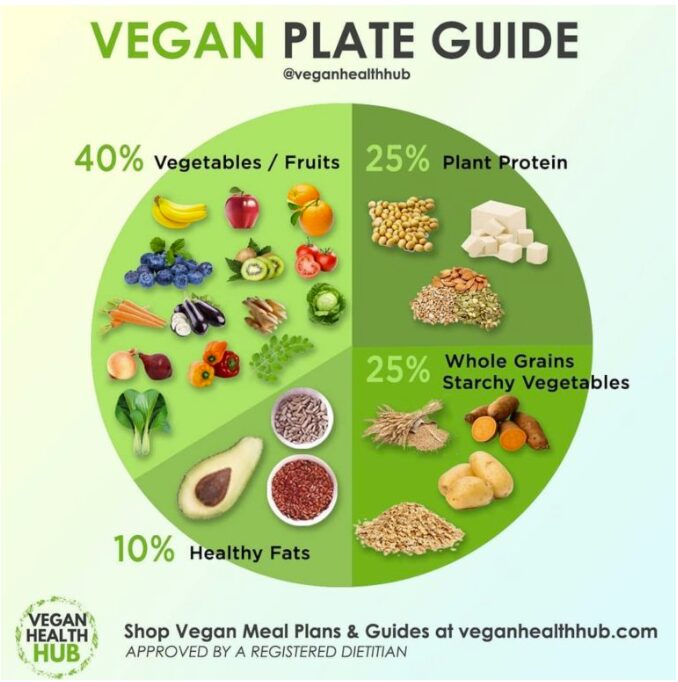In recent years, the surge in veganism has become a significant cultural phenomenon, driven by concerns about health, animal welfare, and environmental sustainability. This dietary choice, once considered fringe, has now permeated mainstream consciousness, prompting individuals worldwide to rethink their consumption habits. However, the rise of veganism has also led to complex debates surrounding its merits and pitfalls, as well as the ways in which food and meat companies capitalize on this growing trend.

Pros of Going Vegan:
1. Health Benefits:
– Vegan diets typically consist of high fiber, low cholesterol, and lower saturated fats, which can lead to reduced risks of heart disease, diabetes, and certain cancers.
– Increased consumption of fruits, vegetables, nuts, and legumes provides essential vitamins, minerals, and antioxidants crucial for overall health and wellbeing.
2. Environmental Impact:
– Livestock agriculture is a significant contributor to greenhouse gas emissions, deforestation, and water pollution. By adopting a vegan lifestyle, individuals can significantly reduce their carbon footprint and mitigate environmental degradation.
– The efficient use of resources in plant-based agriculture compared to animal farming leads to conservation of land, water, and energy.
3. Animal Welfare:
– Veganism aligns with ethical considerations by abstaining from the exploitation and suffering of animals in the food industry.
– By refusing to support industries such as factory farming and animal testing, vegans promote compassion and respect for all living beings.
4. Diversity and Creativity in Cuisine:
– Embracing veganism encourages exploration of diverse and flavorful plant-based foods from different cultures and cuisines.
– Innovative culinary techniques and substitutes allow for the recreation of familiar dishes without animal products, promoting culinary creativity and experimentation.
Cons of Going Vegan:
1. Nutritional Deficiencies:
– Vegan diets may lack certain essential nutrients such as vitamin B12, iron, calcium, omega-3 fatty acids, and protein, which are predominantly found in animal products.
– Inadequate planning or reliance on processed vegan foods may lead to deficiencies and health complications if proper supplementation or dietary diversification is not ensured.
2. Social and Practical Challenges:
– Social gatherings, dining out, and family meals may present challenges for vegans due to limited menu options and social stigma.
– In regions with limited access to fresh produce or cultural reliance on animal-based diets, adopting veganism may be impractical or culturally insensitive.
3. Economic Accessibility:
– Plant-based alternatives and specialty vegan products often come at a premium price compared to conventional animal products, making veganism less accessible to individuals with lower incomes.
– The cost of fresh produce and organic vegan foods may be prohibitively high for some, perpetuating socioeconomic disparities in dietary choices.
4. Potential Health Risks:
– While well-planned vegan diets can be nutritionally adequate, improper implementation may lead to health risks such as malnutrition, eating disorders, and metabolic disturbances.
– Some individuals may experience digestive issues or allergies to certain plant-based foods, necessitating careful dietary management and monitoring.
Corporate Capitalization on Veganism:
1. Market Exploitation:
– Food and meat companies have recognized the growing demand for vegan products and capitalized on this trend by introducing a plethora of plant-based alternatives and vegan-friendly options.
– Large corporations acquire or invest in vegan brands to diversify their portfolios and tap into the expanding market of environmentally-conscious consumers.
2. Greenwashing:
– Some food companies engage in greenwashing tactics by promoting their vegan products as eco-friendly alternatives while disregarding other unsustainable practices within their supply chains.
– Claims of sustainability or ethical sourcing may be misleading, diverting attention from broader issues such as deforestation, labor exploitation, and carbon emissions.
3. Health Halo Effect:
– Marketing strategies often portray vegan products as inherently healthier options, leveraging the perception of health-conscious consumers.
– Despite claims of health benefits, many vegan processed foods contain high levels of sugar, salt, and artificial additives, undermining their nutritional value.
4. Ethical Dilution:
– Corporate involvement in the vegan movement raises concerns about the dilution of ethical principles and commodification of activism.
– Profit-driven motives may compromise the integrity of vegan brands, leading to compromises in ingredient sourcing, animal welfare standards, and environmental sustainability.
The rise of veganism has sparked important conversations about health, ethics, and sustainability, challenging individuals and industries to reassess their roles in shaping the future of food. While vegan diets offer numerous health and environmental benefits, it also presents challenges and potential risks that require careful consideration and informed decision-making. Moreover, the commodification of veganism by food and meat companies underscores the complexities of consumer choices in an increasingly commercialized world. As advocates for change, it is essential to critically examine the intersection of dietary choices, corporate interests, and societal impact to foster a more sustainable and compassionate food system for future generations.








